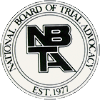News & Resources
Questionable Evidence Used in FDA Approval of Cardiovascular Devices
Dr. Rita Redberg and her colleagues at the UCSF Medical Center have published a startling report regarding the FDA’s approval of cardiovascular drugs. According to the report, from 2000-2007 the FDA approved 78 cardiovascular devices with relatively little evidence.
In fact, nearly two thirds of the pre-market approvals were supported only by a single research study. Additionally, only 27% were randomized tests, and only 14% were approved. Only 5%, or 4 out of 78, used more than one blinded, randomized studies. Nearly nine in ten of the studies relied on surrogate endpoints, which are sometimes misleading.
These numbers and statistics mean that the FDA approved a significant number of cardiovascular devices based on only one report. And many of the reports used it its approval were based on clinical methods widely considered inadequate.
While new surgical procedures do not require any FDA approval and new drugs have strict approval requirements, devices fall somewhere in between the two. Dr. Redberg suggests that the standards of device approvals should be higher than drugs, because "because [devices] are implanted and cannot simply be discontinued, as drugs can."
Less than strict approval requirements for devices affects a significant number of recipient patients, since once a device is approved the manufacturer almost always begins encouraging widespread use. Meanwhile, the GAO recently reported that the while the FDA is improving its post-market procedures, it is still understaffed and ill equipped to pull approved drugs and devices from the market quickly when necessary.
This has created a troubling situation: inadequate device approval requirements, and a deeply flawed post-market monitoring system. This is all the more reason that the FDA needs substantial reform, and it needs it soon.




















